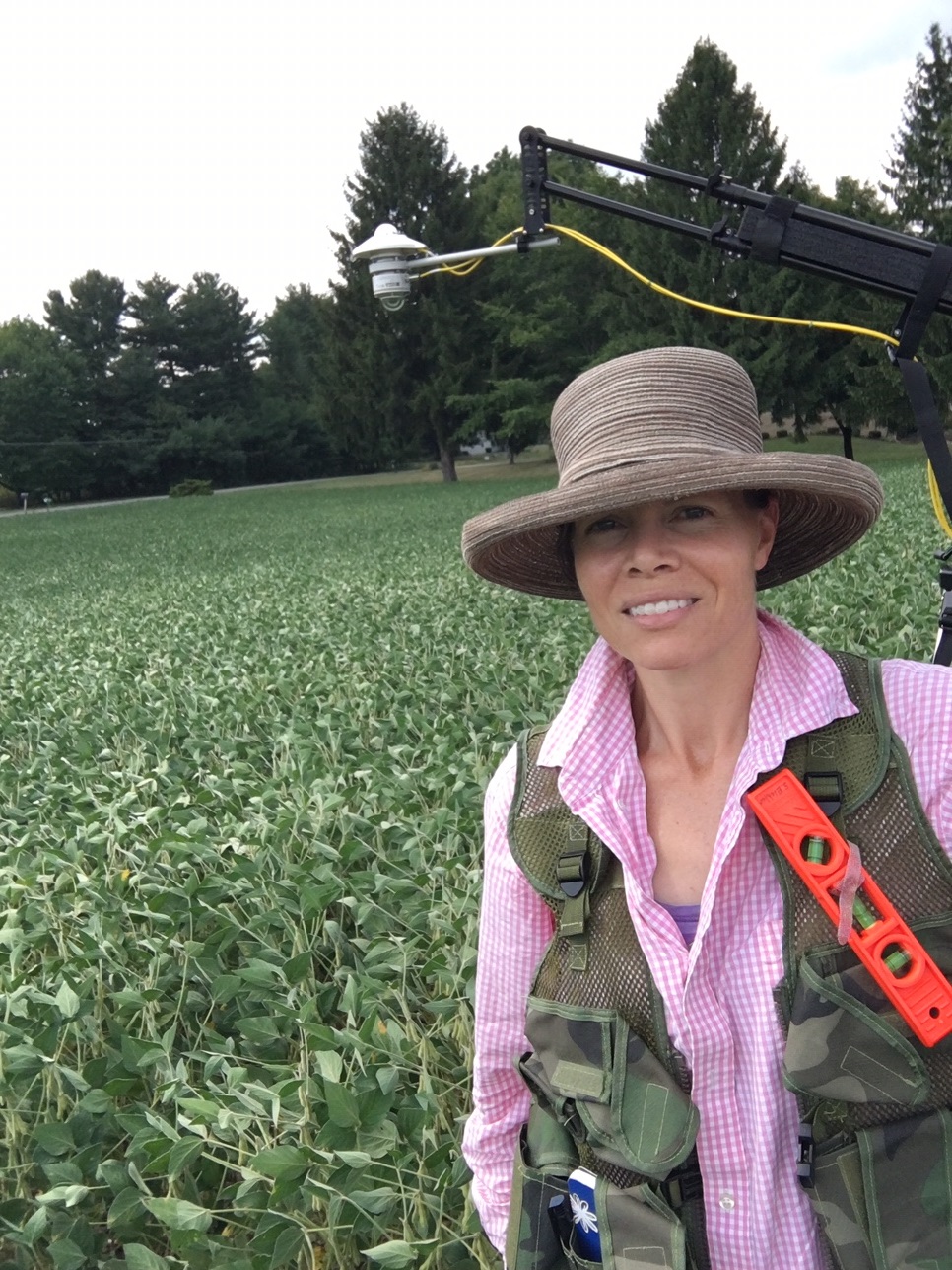Spotlight Sarah Eichler
Q&A with Sarah Eichler, Ph.D., Assistant Professor, Department of Biological Sciences, Kent State University Salem

- Alumni: Kent State University, B.S. cum laude; University of Notre Dame; University of Tennessee Knoxville
- Former Research Fellow: Project Drawdown
- Portage Soil and Water Conservation District Board Member, Secretary
What sparked your interest in biological sciences, agriculture, horticulture, food systems, and climate mitigation?
I grew up in a farming community, helping with my grandparents’ farm and a family garden, playing in the woods and creeks near our home, and reveling in the wild edges of the farm. It did not occur to me until much later that this was a different type of upbringing, extraordinarily rich in its own way. My grandmothers shared a love of plants and a conscientious approach to caring for them which included huge gardens. My mother is famous for cooking for a crowd at the drop of the hat, and always included the best of the items we had stored from the garden. People just raved about her good food and the idea of eating good food that is caringly grown and prepared makes people happy together. As I got into the science side of land and water resource management, I became aware of a growing body of research that demonstrated how to farm with natural processes rather than setting up a battle against them. This realm of research logically flowed into climate solutions as we have learned how much better our production techniques could be for the planet.
What are your favorite accomplishments or projects you have worked on so far?
A favorite recent project was being part of the Project Drawdown team. I got to see a direct use for scientific research that was distinctly outside of academia, and truly trans-disciplinary. We had such an interesting variety of scientists from around the world, with many different areas of expertise, all working toward a very specific goal of defining and measuring climate solutions for the updated Drawdown Review. The solutions in Drawdown have made a real impact in the growing commitment to mitigate climate change.
What is your favorite part of your position?
I love getting to teach outdoors! Even in the occasional Ohio weather surprise. I find that the outdoor setting is conducive to a relaxed, two-way interaction with the students, and they feel much more comfortable sharing what they know about plants. There is so much to know about plants and how to grow them well - students often have experience in something that I’m not familiar with so it is a great opportunity to share information and knowledge. I also truly enjoy interacting with other researchers. There are opportunities to think about things that aren’t front and center in your own research, raising questions, and sometimes leading to an unexpected project or line of research.
How does your work relate to sustainability and/or climate change?
I initially focused on how we can measure our progress toward more sustainable systems. What do we want to measure and why? Who gets to choose these indicators? Is it important that we have specific indicators of sustainability or is the discussion and subsequent action more important than a number or index? I work broadly on agricultural practices that step toward a healthier environment and stable economy while also removing barriers for farmer-driven solutions: win-win-wins. These include democratizing digital information for farm management, expanding interest in cover crops and other forms of carbon farming, and finding out how we can manage farms in our region for environmental, social, and economic resilience. I am currently working on projects related to albedo on farm fields and specialty crops for sustainable fiber production.
What do you want the people of Kent State to know about you and your position as a professor in the Department of Biological Sciences (or any other roles you have)?
I really like to geek out about plants. If you don’t love plants you just haven’t taken the right course yet! Climate commitments around the world recognize the importance of plants and agriculture and I think people with knowledge on how and where to grow which plants will be in demand. The necessary breadth of knowledge will not fit any one type of ‘sustainable’ production system. We need to understand and talk about all the options for growing plants, both their benefits and potential tradeoffs while valuing the farmer / producer. Farming needs to return as a viable way of making a living in our region – this will benefit not only the producers, but also consumers and the non-human members of our environment.
Where is one of your favorite spots to visit on campus? And what makes it your favorite? There is a small stream in the Salem Campus forest that I love to visit. It is bordered by both mature forest and small marsh areas and a surprising diversity of plants which means lots of other creatures going about their business. You can observe the very big and very tiny depending on your mood.
What would people be surprised to learn or know?
I started out in lake biogeochemistry research and still love the big water despite my focus on soil and agricultural landscapes.
Thank you Dr. Sarah Eichler
Kent State Department of Biology
